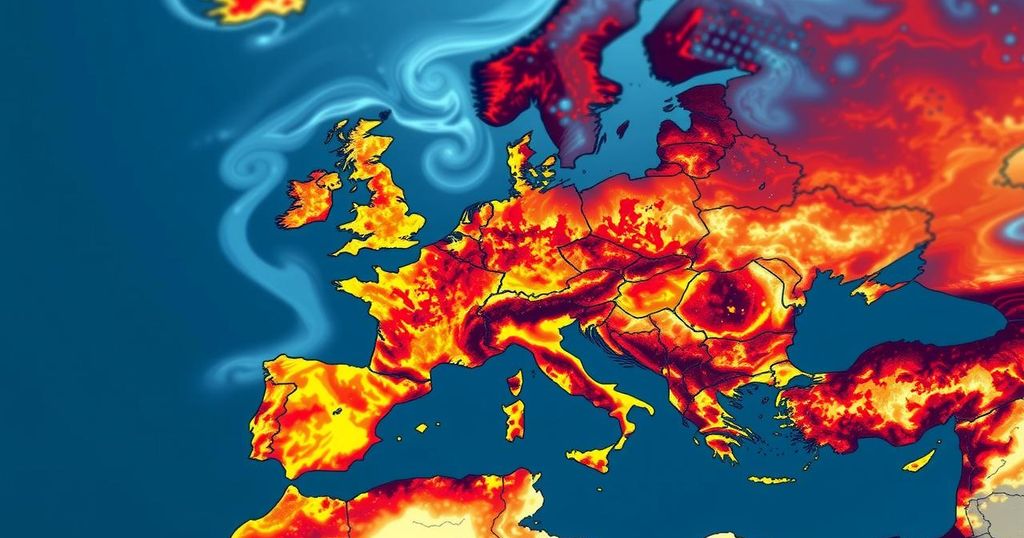The Copernicus Climate Change Service forecasts that 2024 will be the hottest year on record, significantly exceeding 2023’s temperatures, unless there is an extraordinary decline in temperatures. This will mark an alarming first, as average global temperatures are set to exceed 1.5°C above pre-industrial levels, a reality driven largely by carbon emissions from fossil fuels. The COP29 summit is anticipated to address heightened funding commitments for climate initiatives to combat this escalating crisis.
The Copernicus Climate Change Service (C3S) of the European Union has indicated that the year 2024 is likely to be the hottest on record, eclipsing the already high temperatures observed in 2023. This prediction emerges in the context of the forthcoming COP29 climate summit in Azerbaijan, where a substantial increase in global climate financing will be a central topic of discussion. Analysis of data from January to October reveals that global temperatures have surged to unprecedented levels, making it virtually certain that 2024 will reach a new temperature peak, barring any dramatic drop in the remaining months of 2023. Carlo Buontempo, Director of the C3S, has directly linked this extraordinary warmth to climate change, pointing out that rising temperatures are evident across all continents and oceanic regions. Notably, this year is set to establish a significant benchmark as the first time average global temperatures exceed 1.5°C above pre-industrial levels—a critical threshold since the onset of anthropogenic climate change. This alarming trend is largely attributable to the carbon dioxide emissions arising from the burning of fossil fuels, including coal, oil, and gas. Sonia Seneviratne, a prominent climate scientist at ETH Zurich, has stressed that this pivotal milestone highlights the urgent necessity for more stringent commitments at COP29 to transition away from fossil fuel reliance. She warned that the pace of climate action remains insufficient to achieve the Paris Agreement’s objective of limiting temperature increases to 1.5°C, a goal that is projected to be exceeded by 2030 if current trajectories persist. The ramifications of these rising temperatures are already being felt through the exacerbation of extreme weather events. For instance, in October, severe flash floods in Spain resulted in significant loss of life, wildfires raged across Peru, and persistent flooding in Bangladesh devastated rice production, significantly inflating food prices. Furthermore, in the United States, the intensity of Hurricane Milton was heightened due to climate change. C3S data, corroborated by historical records dating back to 1850, confirms that the record temperatures anticipated in 2024 are consistent with a long-standing warming trend primarily driven by human activity.
The European Union’s Copernicus Climate Change Service (C3S) serves as a crucial institution for monitoring and reporting on climate changes based on comprehensive satellite data. Its projections play a pivotal role in shaping global climate policy and responses. As global temperatures rise, the urgency for robust international commitments to address climate change becomes increasingly clear, particularly in relation to the goals set forth in the Paris Agreement, which seeks to limit global warming to well below 2°C and ideally to 1.5°C. The discussions at COP29 will focus on how nations can enhance funding for climate initiatives to mitigate the impacts of climate change that are already being observed worldwide.
In summary, the projections indicating that 2024 will likely surpass previous temperature records underscore the pressing need for substantial climate action. With rising global temperatures attributed to human activities, it is imperative that nations intensify efforts to reduce carbon emissions and transition away from fossil fuels. The extreme weather phenomena resulting from these temperature increases further illustrate the urgency for a collective global response during the forthcoming COP29 climate summit.
Original Source: maktoobmedia.com






